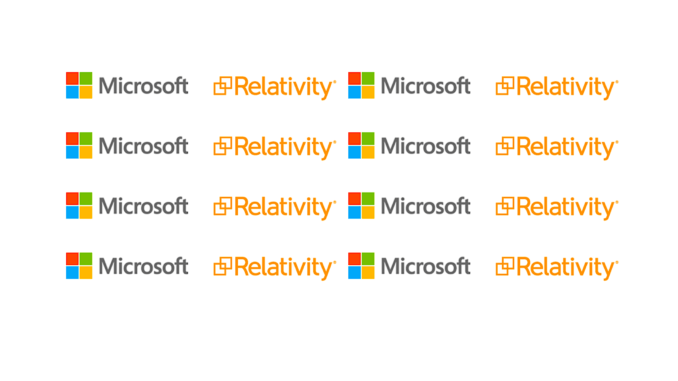
At Relativity Fest in London today, the pioneering eDiscovery and investigations company has rolled out a mass of announcements, ranging from a focus on ethical AI, to NLP-driven sentiment analysis, to machine translation.
First up, Relativity is integrating with Microsoft Translator Text API, part of Microsoft Cognitive Services, so that users of RelativityOne can get the ‘out-of-the-box ability to translate large batches of documents in more than 100 languages and 12,000 language combinations’.
Relativity has always been a company that is open to partnerships, but this is an interesting one given that they are in effect bringing in tech giant Microsoft’s NLP capabilities – albeit in this case for the purpose of translation.
They added that an early access trial with select groups will kick off this month and will be refined for general availability later this year.
Raju Patel, Associate Director, Digital Forensic Group at Grant Thornton, stressed that this ability mattered because ‘today, we struggle with the speed of third parties turning around translations’, and so ‘integrated machine translation will be well-used by our team given the opportunity to save all this time and improve our efficiencies’.
The US-based company also underlined that they want to focus more on ethical AI and make sure they are removing bias from doc review, in particular they are ‘advancing integration with Text IQ to deepen capabilities, and developing and cultivating the people and skills required to innovate on those technologies’.
Mike Gamson, CEO of Relativity, noted: ‘We’re energised by the vast benefits of AI and the innovative ways in which our customers are leveraging it to solve key data challenges. We also recognise the risks of deploying AI without putting the proper safeguards in place, and it’s something we’re taking seriously.’
Another upgrade to the platform is the ability to provide ‘parallel execution [of Automated Workflows] which will allow users to run multiple actions at the same level in their workflow at the same time’.
And they are also going to introduce a Copy to Workspaces feature, allowing users to create copies of their workflow across one or more workspaces. They also plan to add APIs for Automated Workflows that will enable users to build their own actions and triggers.
I.e. creating and managing better workflows – and allowing plenty of user customisation – looks to be a key strand of Relativity’s ongoing strategy.
There are other features coming along, but here is one last one that this site noted and that’s the AI-powered Sentiment Analysis feature, which is now in ‘Advanced Access’ and will be available to RelativityOne users later this year.
Once again it’s NLP and in this case ‘the analysis is conducted on a sentence-by-sentence basis so that even if negative sentiment is buried within a longer conversation, users will not miss that key information’.
Now, you may ask why do you need that?
Michallyn Demiter, eDiscovery Expert at Bayer, explained: ‘Sentiment Analysis enables us to look at our data from a new perspective, helps prioritize our review, and allows our teams to make smarter and more strategic decisions.’
There’s more, but, let’s leave it here for now. Overall, the message is: Relativity is not standing still and is clearly investing plenty of time and money into developing new tools and building useful integrations. And that’s a reflection of where the legal tech market is now: everyone has to keep pushing the boundaries to keep their clients in a sector that is now more competitive than ever before.